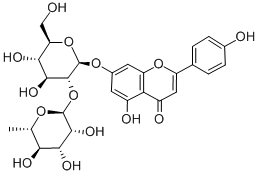Insulin Receptor
The insulin receptor is a transmembrane receptor that is activated by insulin, a hormone crucial for regulating carbohydrate and fat metabolism in the body. This receptor belongs to the tyrosine kinase family and plays a key role in the cellular uptake of glucose, thus controlling blood sugar levels. Upon binding insulin, the receptor undergoes autophosphorylation and activates several intracellular signaling pathways, including those involving glucose transport and metabolic gene expression. Dysfunction or insensitivity of the insulin receptor is a primary component of type 2 diabetes, leading to impaired glucose homeostasis. Targeting the insulin receptor pathway, either by enhancing its activity or mimicking its actions, is fundamental in treating diabetes and related metabolic disorders.

